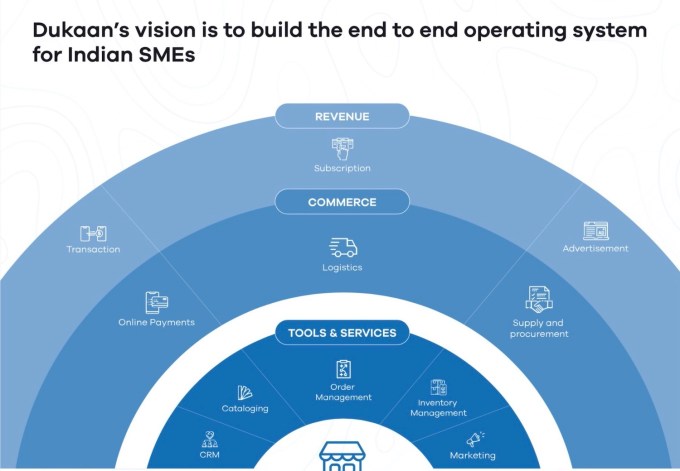Berlin-based Mobius Labs has closed a €5.2 million (~$6.1M) funding round off the back of increased demand for its computer vision training platform. The Series A investment is led by Ventech VC, along with Atlantic Labs, APEX Ventures, Space Capital, Lunar Ventures plus some additional angel investors.
The startup offers an SDK that lets the user create custom computer vision models fed with a little of their own training data — as an alternative to off-the-shelf tools which may not have the required specificity for a particular use-case.
It also flags a ‘no code’ focus, saying its tech has been designed with a non-technical user in mind.
As it’s an SDK, Mobius Labs’ platform can also be deployed on premise and/or on device — rather than the customer needing to connect to a cloud service to tap into the AI tool’s utility.
“Our custom training user interface is very simple to work with, and requires no prior technical knowledge on any level,” claims Appu Shaji, CEO and chief scientist.
“Over the years, a trend we have observed is that often the people who get the maximum value from AI are non technical personas like a content manager in a press and creative agency, or an application manager in the space sector. Our no-code AI allows anyone to build their own applications, thus enabling these users to get close to their vision without having to wait for AI experts or developer teams to help them.”
Mobius Labs — which was founded back in 2018 — now has 30 customers using its tools for a range of use cases.
Uses include categorisation, recommendation, prediction, reducing operational expense, and/or “generally connecting users and audiences to visual content that is most relevant to their needs”. (Press and broadcasting and the stock photography sector have unsurprisingly been big focuses to date.)
But it reckons there’s wider utility for its tech and is gearing up for growth.
It caters to businesses of various sizes, from startups to SMEs, but says it mainly targets global enterprises with major content challenges — hence its historical focus on the media sector and video use cases.
Now, though, it’s also targeting geospatial and earth observation applications as it seeks to expand its customer base.
The 30-strong startup has more than doubled in size over the last 18 months. With the new funding it’s planning to double its headcount again over the next 12 months as it looks to expand its geographical footprint — focusing on Europe and the US.
Year-on-year growth has also been 2x but it believes it can dial that up by tapping into other sectors.
“We are working with industries that are rich in visual data,” says Shaji. “The geospatial sector is something that we are focussing on currently as we have a strong belief that vast amounts of visual data is being produced by them. However, these huge archives of raw pixel data are useless on their own.
“For instance, if we want to track how river fronts are expanding, we have to look at data collected by satellites, sort and tag them in order to analyse them. Currently this is being done manually. The technology we are creating comes in a lightweight SDK, and can be deployed directly into these satellites so that the raw data can be detected and then analysed by machine learning algorithms. We are currently working with satellite companies in this sector.”
On the competitive front, Shaji names Clarifai and Google Cloud Vision as the main rivals it has in its sights.
“We realise these are the big players but at the same time believe that we have something unique to offer, which these players cannot: Unlike their solutions, our platform users can be outside the field of computer vision. By democratising the training of machine learning models beyond simply the technical crowd, we are making computer vision accessible and understandable by anyone, regardless of their job titles,” he argues.
“Another core value that differentiates us is the way we treat client data. Our solutions are delivered in the form of a Software Development Kit (SDK), which runs on-premise, completely locally on clients’ systems. No data is ever sent back to us. Our role is to empower people to build applications, and make them their own.”
Computer vision startups have been a hot acquisition target in recent years and some earlier startups offering ‘computer vision as a service’ got acquired by IT services firms to beef up their existing offerings, while tech giants like Amazon and (the aforementioned) Google offer their own computer vision services too.
But Shaji suggests the tech is now at a different stage of development — and primed for “mass adoption”.
“We’re talking about providing solutions that empower clients to build their own applications,” he says, summing up the competitive play. “And that [do that] with complete data privacy, where our solutions run on-premise, and we don’t see our clients data. Coupled with that is the ease of use that our technology offers: It is a lightweight solution that can be deployed on many ‘edge’ devices like smartphones, laptops, and even on satellites.”
Commenting on the funding in a statement, Stephan Wirries, partner at Ventech VC, added: “Appu and the team at Mobius Labs have developed an unparalleled offering in the computer vision space. Superhuman Vision is impressively innovative with its high degree of accuracy despite very limited required training to recognise new objects at excellent computational efficiency. We believe industries will be transformed through AI, and Mobius Labs is the European Deep Tech innovator teaching machines to see.”



